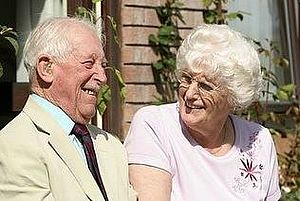
What is community care?
The National Health Service and Community Care Act 1990, sets out how care should be provided by Social Service departments. Increasingly, this is in partnership with Health services such as GPs, District Nurses and Therapy staff. An important part of this is Intermediate Care services which can prevent people having to go into hospital and help them to return to their own home, much sooner with help if needed.
The NHS and Community Care Act cover those people who:
- have a disability or sensory impairment;
- are chronically sick or terminally ill;
- misuse drugs or alcohol;
- are a carer;
- are over 65 with any of the above.
We aim to help our service users to live as independently and lead as satisfying a life as possible in their own homes. It is essential for us to consider the needs of carers. We also aim to provide services as fairly and equally as possible, taking into account an individual’s particular needs.
What do Social Services do?
Care Managers employed by the Social Services Department have access to a wide range of information and services, any of which may be appropriate for potential individual users. Everyone’s needs are different, so we aim to work with each person to agree their needs and how they might be met.
What might be in a package of care?
This might be in the form of services provided directly by the Local Authority, independent agencies or direct payments that will help you choose your own carers.
- Home Care might provide assistance with tasks that you are unable to manage or have difficulty in undertaking alone.
- Meals On Wheels seeks to deliver a quality and nutritious meal at an appropriate time for a reasonable price.
- Adaptations To Your Home (e.g. a ramp) & Daily Living Appliances (e.g. bathing aids) are available to assist you. These are assessed for by Community Occupational Therapists employed by the Social Services Department.
- Day Centres can provide essential support, company and maybe a chance to develop new interests.
- Respite Care can be arranged. For example, you might be able to spend a week in a residential home so that the person who looks after you could go on holiday.
- District Nursing might mean a shorter stay in hospital by the provision of nursing care in your home on your return.
- Direct Payments is another way of receiving help. Instead of actual services, this is an agreed amount of money to enable you to purchase your own care. It is based upon the needs identified in your assessment. Help is provided to enable you to employ your own carers. You decide what type of care you have and who provides it, by employing a Personal Assistant. There is a separate leaflet about Direct Payments.
These are just a few examples, the help you may receive depends on what your needs are.
Who is entitled to these services?
The people who receive our service will be those who are in greatest need and each service has a way of measuring this. When you contact us, we can explain whether you are likely to be eligible.
What happens next?
We will require some simple information about you and your situation. This will help us to assess the kind of assistance you may require. If necessary, we can then arrange for an assessment to identify your needs and suggest a package of care which will aim to meet those needs. A Care Manager might well visit you in order to do this and might involve other people such as your doctor. If someone looks after you, it may be that they also have needs that they would like us to help with.
Confidentiality
Any information obtained from you will be held in the strictest confidence and you have the right, at any time, to look at this.
Do I have a say in what I receive?
Yes, your views are taken into account at every stage and we also encourage as a service user and your carer to take part in the planning of services. We would be interested to have your opinion of our services and to hear of any ideas you have for improving them.
We aim to help. However, if you are unhappy with the service we provide and want to make enquiries, or feel you would want to complain, you have a right to do so. Further details of how to use the Department’s complaints procedure can be found in our complaints leaflet.
Will I have to pay?
There may be a charge for some of the services provided. The amount you pay will be decided by an assessment of your financial circumstances as well as looking at what financial benefits you may be entitled to. This can be explained to you by the Care Manager.
We can provide advice on the services available which include:
- From Social Services: home care; meals on wheels; daily living appliances; residential care; day care; respite care; bus passes; telephones; car badges; community occupational therapy; help on personal problems, telecare and Direct Payments.
- From The Health Authority: district and community nursing; community physiotherapy; loan of selected nursing/medical equipment.
- From The Housing Department and Housing Associations: sheltered housing; adaptations to your property.
- From Primary Health Care Teams: chiropody; audiology (hearing aids and tests).
- From The Independent Sector (Voluntary and Private): self-help and support groups; residential and nursing care.
Contact Information
For information, advice or assistance, to make a referral or report concerns in relation to:
- a person aged 18 or over, please contact the Adult Services IAA Hub
- a child or young person, please contact the Children’s Services IAA Hub
Telephone: 01495 315700
Email : DutyTeamAdults@blaenau-gwent.gov.uk
Fax: 01495 353350
For general information enquiries:
Email : info@blaenau-gwent.gov.uk
Headquarters:
Social Services Directorate
Anvil Court
Church Street
Abertillery
NP13 1DB
Telephone: 01495 354680
Fax: 01495 355285
